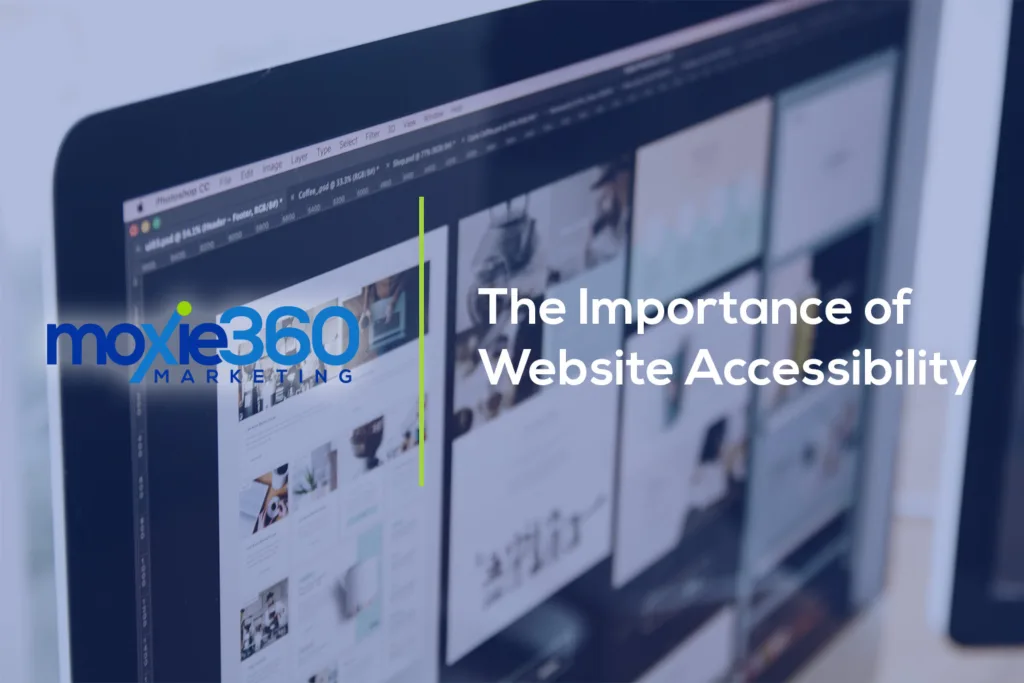In today’s digital age, websites serve as the primary gateway for businesses to connect with their audience. Amidst the focus on attractive designs and captivating content, one vital aspect often goes unnoticed: website accessibility. At Moxie360 Marketing, we understand the importance of inclusive digital experiences, and we’re here to explain why website accessibility is crucial.
Legal Consequences of Inaccessible Websites
Websites that are inaccessible can alienate potential customers and even face legal consequences for violating accessibility laws such as the Americans with Disabilities Act (ADA).
Accessibility encompasses a wide range of considerations, from ensuring that websites are navigable for individuals with visual or motor impairments to providing alternative text for images and captions for videos. Making websites accessible benefits not only users with disabilities but also improves the user experience for all visitors.
One of the most critical aspects of website accessibility is ensuring that the content is perceivable by all users, regardless of their abilities. This includes providing alternative text for images, captions for videos, and transcripts for audio content. By providing alternative formats for multimedia content, website owners can ensure that individuals with disabilities can access the same information as everyone else.
Ensuring Navigable Websites
Another essential aspect of website accessibility is ensuring that the site is navigable for individuals with disabilities. This includes using clear and consistent navigation menus, providing keyboard shortcuts for users who cannot use a mouse, and ensuring that links and buttons are easily clickable. By making websites easier to navigate, website owners can ensure that individuals with disabilities can find the information they need quickly and efficiently.
In addition to making websites perceivable and navigable, it’s also essential to ensure that websites are operable for individuals with disabilities. This means ensuring that all interactive elements, such as forms and buttons, are accessible via a keyboard and that they provide clear instructions for use. By making websites operable, website owners can ensure that individuals with disabilities can interact with the site effectively.
Achieving Understandable and Robust Websites
Finally, website owners must ensure that their sites are understandable and robust. This means using clear and simple language, avoiding jargon and complex terminology, and ensuring that all content is easy to understand. Additionally, website owners should regularly test their sites for accessibility issues and address any issues that arise promptly.
Website accessibility is a fundamental aspect of creating a truly inclusive digital space. By prioritizing accessibility in your website design, you not only comply with regulations but also enhance user experience, expand your audience reach, and demonstrate your commitment to inclusivity. At Moxie360 Marketing, we’re passionate about creating accessible websites that empower and inspire, and we’re here to help you make your digital presence truly shine.


